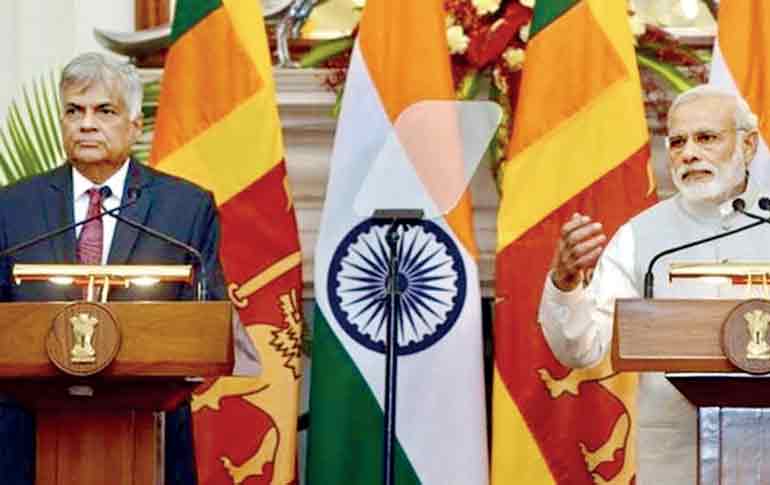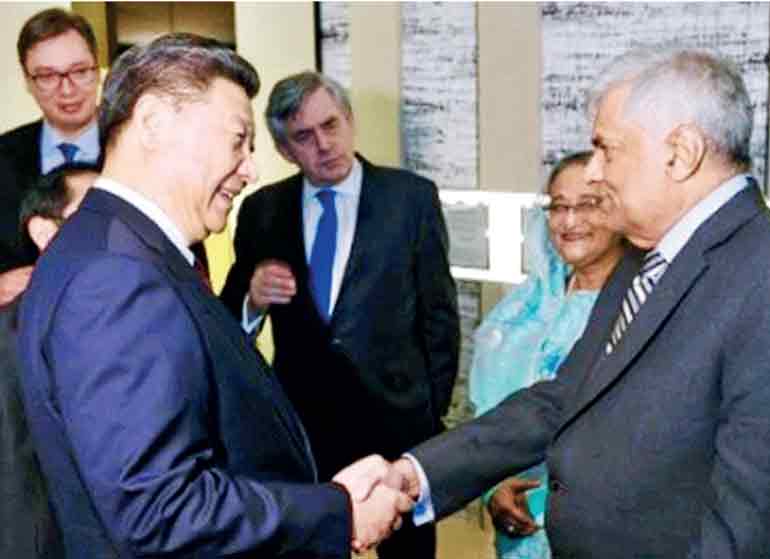Friday Feb 13, 2026
Friday Feb 13, 2026
Friday, 16 December 2022 00:00 - - {{hitsCtrl.values.hits}}

Sri Lanka, given the humongous crisis we are in, needs economic diplomacy of a high order, run by competent professionals


Since the end of the Cold War, a few clichés have governed discourse between nations. The vaguest of these was the ‘New World Order’, which first appeared in the wake of the Gulf War. It was suggested then that after the changes in Eastern Europe and the enforcement of principles of international law in the Gulf War, concepts of national sovereignty were no longer relevant. The international community could force nations to accept certain basic norms, whether in the areas of economic, environmental, or human rights policy.
Few years later there was a tendency in the international community to link development assistance with the protection of human rights and the environment to tighten those principles. Human rights are linked to the issue of the right to self-determination of ethnic groups. Then, the question is whether the unqualified application of these international norms will lead to world order or disorder?
Take the complex examples of Ukraine and Russia, where unless some limit is placed on human rights and self-determination, there will be more disorder than order. After the pandemic, developing country leaders criticised the move towards linking emergency aid with human rights, ironically in the developing world, large sections of the population consider human rights to be academic in the face of endemic poverty and debt. India and China the second largest and the fifth largest economies have put forward the view that human rights are important values to be cherished but individual nations should have the discretion to determine them.
Further, the link between poverty and environmental degradation also needs to be considered under different circumstances and conditions. A large number of developing nations cannot deal with questions of the environment, independent of questions of economic development and poverty.
The Non-aligned Movement (NAM)
Sirimavo Bandaranaike was a key figure in the NAM movement. She steered along a path of economic development with emphasis on collective economic self-reliance, aimed at reducing the gap between the developed and developing countries. Some criticised her approach. However the demand for a ‘New International Economic Order’ was strongly made, asserting the aspirations of the developing world and in support of an expansion of trade and investment. The 5th NAM Summit that was held at the Bandaranaike Memorial International Conference Hall, gifted by the Chinese government was used cleverly to position Sri Lanka at the centre of the developing world.
Unfortunately NAM has now lost its way. Recently the foreign media reported that there has been a conflict between the Indian and Chinese forces on 9 December over a border issue and that could going forward spill over into South Asia in many forms and sizes. Both countries are genuine friends of Sri Lanka. Therefore the non-alignment is something that needs to be pursued with vigour. So, what is the role of the Non-Aligned Movement in the post-pandemic world? Firstly, we need to distinguish between non-alignment and the non-aligned movements. Non-alignment entails:
1) Not getting dragged into conflicts and clashes of interest between global powers;
2) Guarding independence of actions in international politics/foreign policy; and
3) Maintaining close relations with all nations irrespective of ideology.
These principles still hold, and therefore must remain the basic aim of most developing world foreign policymakers, especially in the aftermath of the pandemic and debt crisis. There is ample research to show that being neutral helps to attract private investment and development assistance for a wellbeing of a country and also builds confidence with global businesses to invest and also to expand.
Conclusion
Given that the main cause for chaos in the world for centuries is the desire of certain nations from time to time to dominate the world, several leaders have envisioned a new world order as that of an international system which is largely democratic and broad based enough to handle the basic needs of the world. Collective global statesmanship of a high order is required to make this happen.
Therefore for debt burdened, for ever developing countries like us, being neutral and non-aligned, but remaining relevant is crucial as the world gets more complex and unmanageable from time to time, this could help developing countries to have easier access to markets for their products and facilitate the transfer of technologies to deal with poverty, health and grow their industry. Right people with the right knowledge and bandwidth should be at the forefront to address these global challenges, both at bureaucratic and political level.
Reference:
https://sirimavobandaranaike.org/en/16-19-august-1976-chairing-the-non-aligned-movement/
Selected essays on Foreign Affairs part 1 and 2 – DW